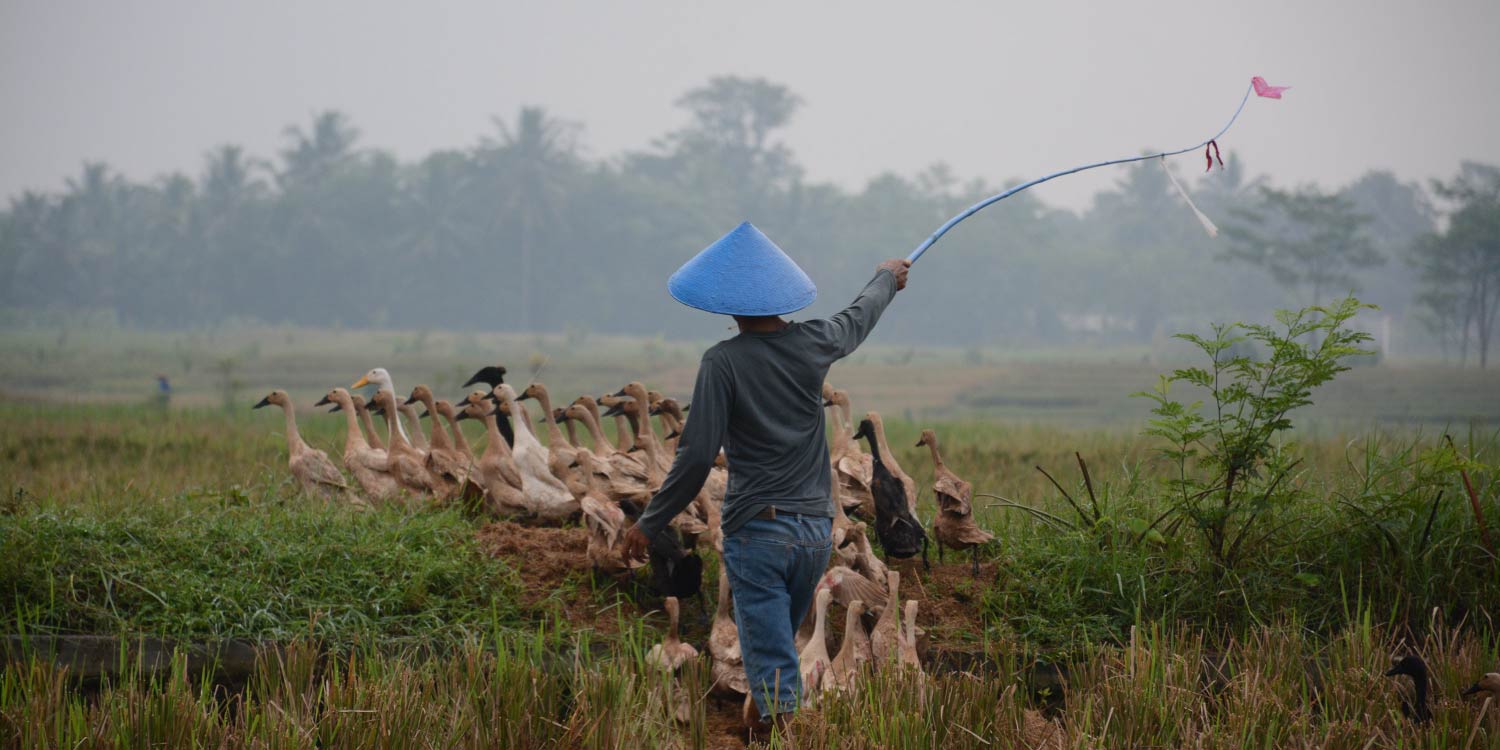
Edition: 17 to 21 April 2023
PARTNERSHIP
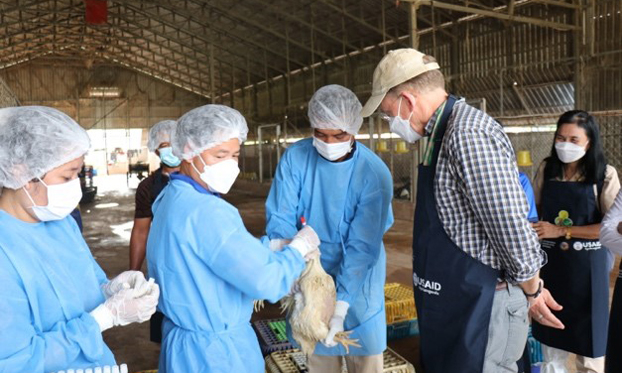 ©FAO/Towela Munthali | CAMBODIA US Ambassador to Cambodia visits Siem Reap and observes interventions aimed at reducing risks of animal health threats |
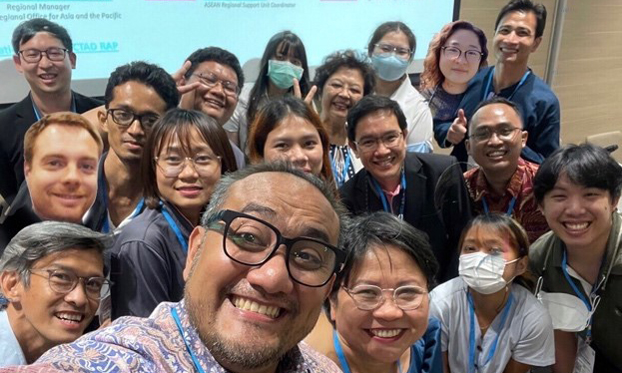 ©FAO/Asfri Rangkuti | ASIA AND THE PACIFIC REGION Sharing knowledge to youth on vet roles towards FAO’s four betters |
RISK REDUCTION
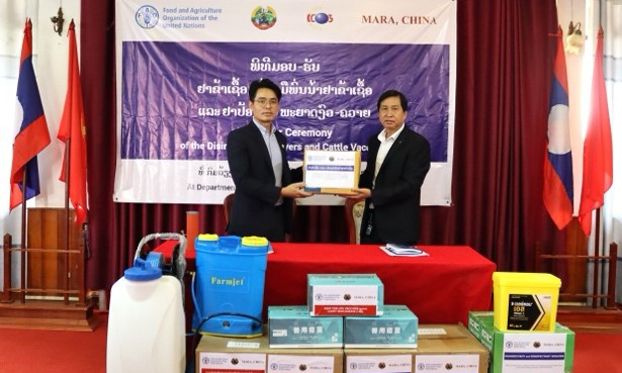 ©fao/Bounmee Maokhamphiou | LAO PEOPLE’S OF DEMOCRATIC REPUBLIC AND ASIA AND THE PACIFIC REGION Handover of vaccines and equipment to improve safer cattle exports to China |
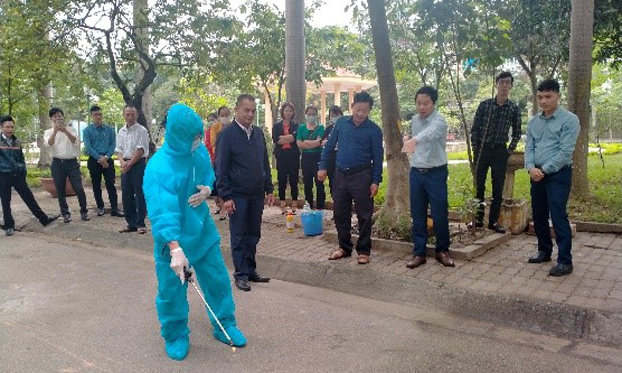 ©fao/Pawin Padungtod | VIET NAM Testing training materials with local extension workers and pig farmers In collaboration with Viet Nam National Agriculture Extension Center (NAEC), FAO organized three-day training courses to test the draft training materials on good management practices and biosecurity for small and medium-scale pig fattening farms, including waste treatment, from 12 to 14 April 2023. Thanks to USAID, the training involved 50 local extension workers and pig farmers from Bac Ninh and Vinh Phuc provinces to test the materials before finalizing and transferring them to NAEC for widespread use throughout the Viet Nam extension system. |
SURVEILLANCE
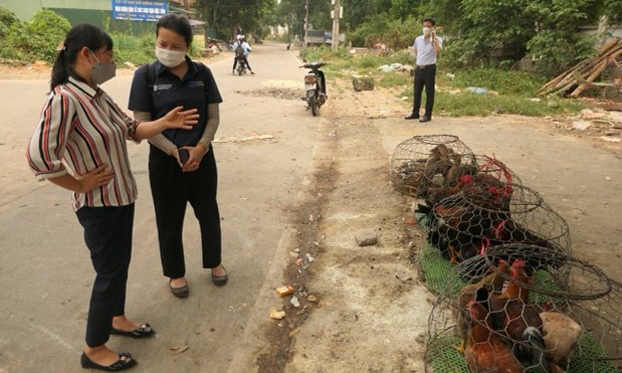 ©FAO/Gael Lamielle | VIET NAM AND ASIA AND THE PACIFIC REGION Improving animal disease detection and surveillance FAO collaborated with the Ministry of Agriculture and Rural Development’s Department of Animal Health (DAH) to support strengthening of Viet Nam’s animal disease surveillance capacity with help from the Surveillance Evaluation Tool (SET). The SET mission composed of FAO and DAH epidemiologists, conducted a comprehensive evaluation of the technical and functional surveillance capacities in several provinces in Viet Nam from 17 to 27 April 2023 to understand the gaps, provide evidence for improved policy and practice, and guide actions to improve Viet Nam’s animal disease surveillance capacities in a coordinated approach. Thanks to USAID for the continuous support. Learn more here.
|
LABORATORY
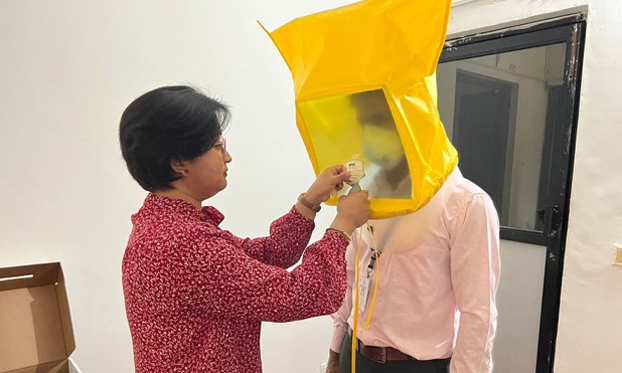 ©FAO/Surendra Karki | NEPAL Protecting laboratory workers from infectious pathogens FAO, the Department of Livestock Services and Central Veterinary Laboratory in Tripureshwor conducted a three-day training on laboratory biosafety and biosecurity measures at the veterinary laboratory in Dhangadhi from 19 to 21 April 2023. The training sought to equip laboratory workers with the knowledge to protect themselves from accidental or intentional exposure to infectious pathogens while working in the laboratory, with thanks to USAID for the support.
|
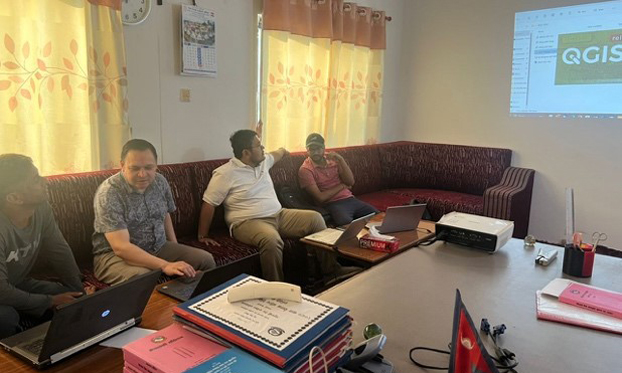 ©FAO/SURENDRA KARKI | NEPAL Enhancing laboratory data management FAO, through USAID funding, provided hands-on training on rabies database management and GIS application for veterinarians and technicians working at the veterinary laboratory in Dhangadhi from 16 to 18 April 2023. In collaboration with the Department of Livestock Services and Central Veterinary Laboratory Tripureshwor, the training aimed to provide hands-on skills on rabies diagnostic data management and GIS mapping. A desktop computer and a printer were also handed over to the laboratory to support data management.
|
ONE HEALTH
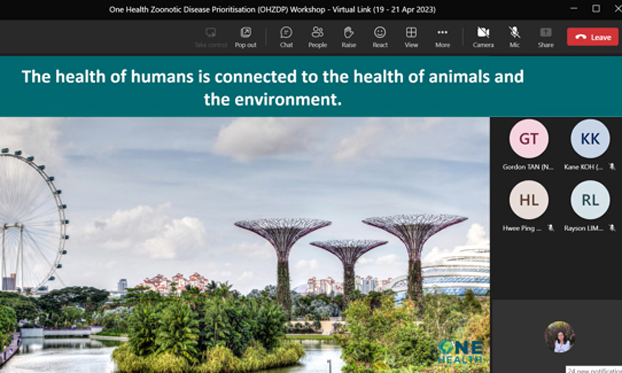 ©fao/Yin Myo Aye | SINGAPORE AND ASIA AND THE PACIFIC REGION Prioritizing top zoonotic diseases of greatest concern FAO has been co-facilitating the preparation for OHZDP in Singapore through bi-weekly virtual calls since January 2023, along with CDC. The OHZDP workshop was conducted in person in Singapore between 19 and 21 April 2023, while FAO provided technical support, connecting virtually. Avian influenza A, yellow fever, rodent-borne diseases (leptospirosis and hantavirus), food-borne diseases (hepatitis E, salmonellosis and campylobacteriosis) and emerging coronaviruses (SARS, COVID-19 and MERS) were prioritized for One Health implementation in Singapore.
|
ANTIMICROBIAL RESISTANCE (AMR)
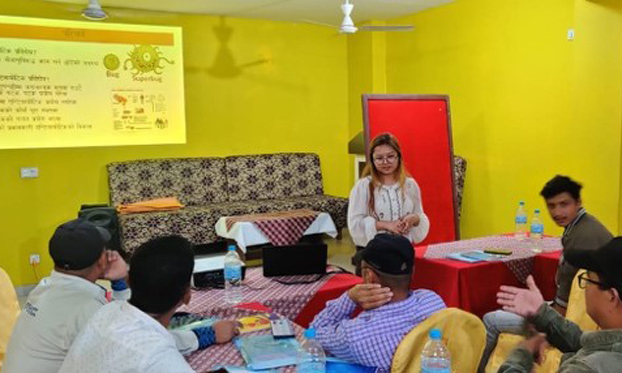 ©fao/SURENDRA KARKI | NEPAL Reducing antimicrobial use in poultry farms |
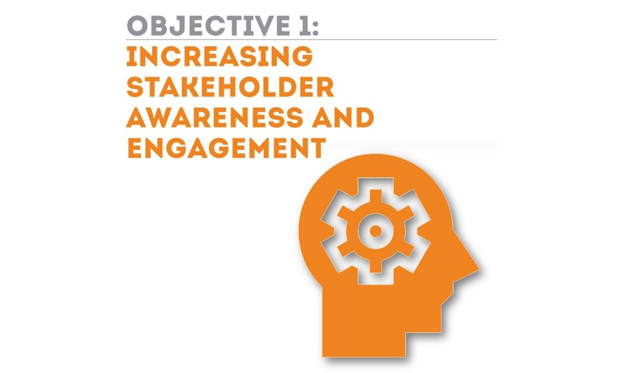 ©fao | ASIA AND THE PACIFIC REGION Coordination call for awareness and engagement of FAO Action Plan on AMR A new model of coordination for awareness and engagement was discussed during the coordination call of the AMR working group. In the new model endorsed by the Chief Veterinary Officer, key people from the region will form the coordination group to improve the delivery and implementation of Objective 1 of the FAO Action Plan. It is hoped that each region’s communication specialists will contribute to the planning and recommendation of how to implement activities under Objective 1. Key priorities include supporting FAO Member Nations to deliver nationwide training and awareness regularly; collecting and summarizing behavioural change work across regions to find synergies; identification of knowledge-action gaps through expert consultations and barrier/enabler analysis; implementing innovative behaviour change interventions coordinated across regions in collaboration with partners and other stakeholders; and, updating of training curriculums and awareness-building measures including strengthened policy advocacy. |
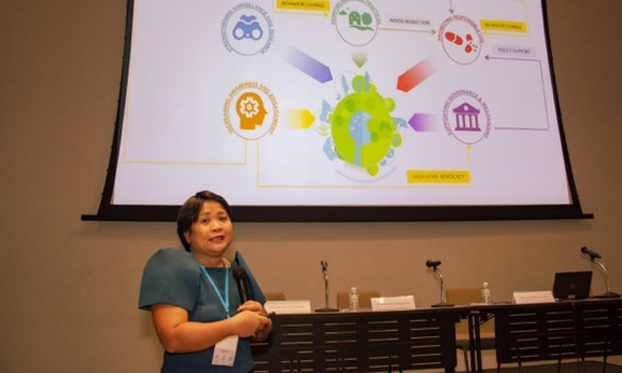 ©fao/Domingo Caro (III) | ASIA AND THE PACIFIC REGION Participation in the international veterinary conference FAO Regional Project Coordinator Dr Mary Joy Gordoncillo gave a talk at the Chulalongkorn University Veterinary Conference 2023 Lunch Symposium on 21 April 2023. The symposium focused on the Federation of Asian Veterinary Associations (FAVA) strategy to tackle AMR 2021-2025. Dr Gordoncillo talked about veterinarians’ role in the global efforts towards mitigating AMR spread, not only on global health but also on the economy and society. Potential contributions are linked with the five objectives of the FAO Action Plan on AMR (2021-2025), which underpins FAO’s cohesive work in addressing AMR in agrifood systems at the global, regional and national levels. |
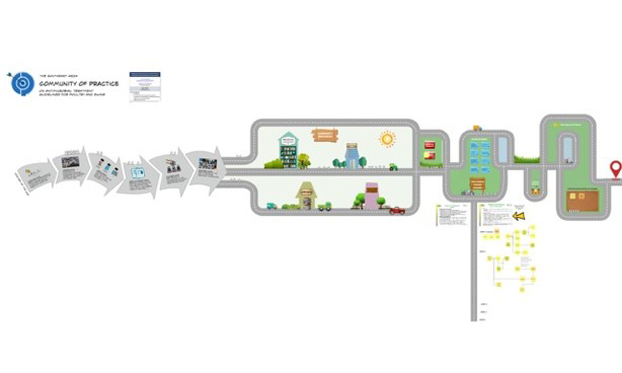 ©fao/Mary Joy Gordoncillo | ASIA AND THE PACIFIC REGION Concrete actions in developing treatment guidelines discussed A brainstorming session was held among members of the communities of practice (CoPs) on treatment guidelines on 19 April 2023. FAO introduced the COP's community mural, which will serve as a provisional platform for organizing files and brainstorming sessions. The FAO Virtual Learning Centre is seen as a more permanent platform for future CoP collaboration. The brainstorming session centred on the steps to develop a national treatment guideline for low-and-middle income countries (LMICs). The final results will be used to create a community paper for LMICs' treatment guideline development. |
